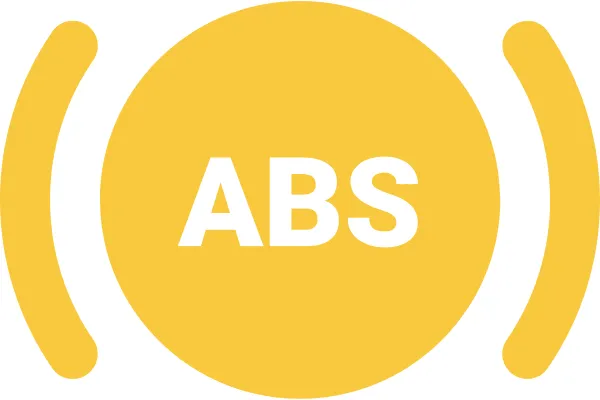
How Vehicle ABS Systems Work—and What Causes Them to Fail
Modern vehicles come with a lot of safety features, and one of the most essential is the Anti-lock Braking System (ABS). If you've ever felt your brake pedal pulse during a hard stop, you've seen ABS in action. In this blog, we'll break down how ABS works, what it's designed to do, and what can cause it to stop working correctly.

What is ABS and Why Is It Important?
ABS stands for Anti-lock Braking System. It's a safety system that prevents your wheels from locking up during heavy braking—especially on wet or slippery roads. Locking wheels can lead to skidding and loss of steering control. ABS works by rapidly pulsing the brakes to maintain traction and allow the driver to steer while braking hard.
How It Works:
Speed Sensors at each wheel constantly monitor wheel speed.
When the system detects a wheel about to lock up, it sends a signal to the ABS Control Module.
The module commands the hydraulic valves in the brake lines to momentarily release and reapply brake pressure—multiple times per second.
This keeps the wheels rotating just enough to prevent skidding while still slowing the vehicle.

Common Causes of ABS Failure
Even though your ABS is a robust system, it's not immune to issues. Here are some common reasons an ABS warning light might come on or the system might fail:
1. Faulty Wheel Speed Sensors
These sensors are exposed to road debris, water, and corrosion. If one fails or gets dirty, the ABS can’t accurately detect wheel speed.
2. Damaged Wiring or Connectors
Wiring to the ABS sensors or control module can be damaged by road salt, impact, or wear over time. Poor connections = poor data = ABS malfunction.
3. Low Brake Fluid
ABS systems require hydraulic pressure to work. If your brake fluid is low, the system might not function properly—and it could be a sign of a leak or worn pads.
4. Blown ABS Fuse or Relay
A simple electrical failure, like a blown fuse, can disable the ABS system completely. It’s one of the first things techs check during diagnosis.
5. Failing ABS Control Module
These modules rarely fail, but when they do, they often require replacement or reprogramming. Signs include inconsistent ABS operation or total system failure.
6. Worn Hydraulic Pump or Valves
The hydraulic components that control brake pressure can become sticky or fail with age and contaminated brake fluid.
When to Get it Checked
If you see your ABS light on your dashboard or notice odd braking behavior (like pulsing when it shouldn’t happen), it’s time for a professional inspection. Ignoring ABS issues can lead to reduced safety when you need it most.
Give us a call at 505-247-9771 for any issues or questions you may have about your ABS system!
